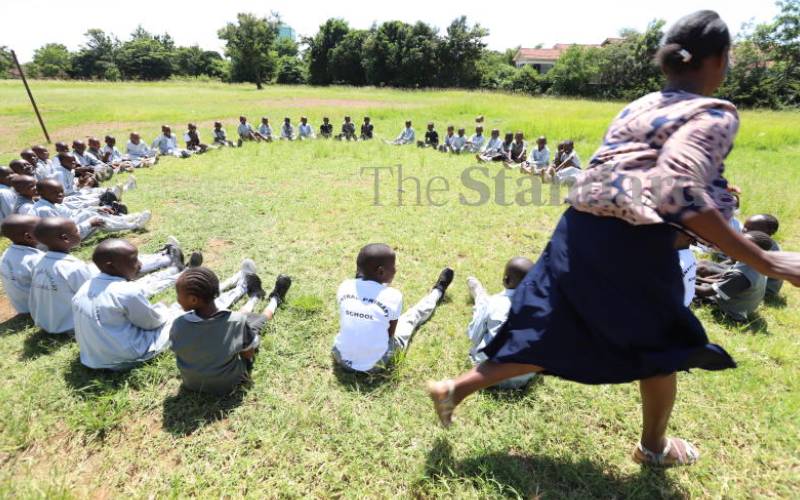×
The Standard e-Paper
Kenya’s Boldest Voice

Teacher Dorcas Odonya sprints as she takes Grade 3 pupils at Central Primary School, Kisumu, through a Physical Education (P.E) lesson. [Denish Ochieng, Standard]
The true cost of curriculum reforms still remains unknown even as the government gradually and steadily introduces the new education system.